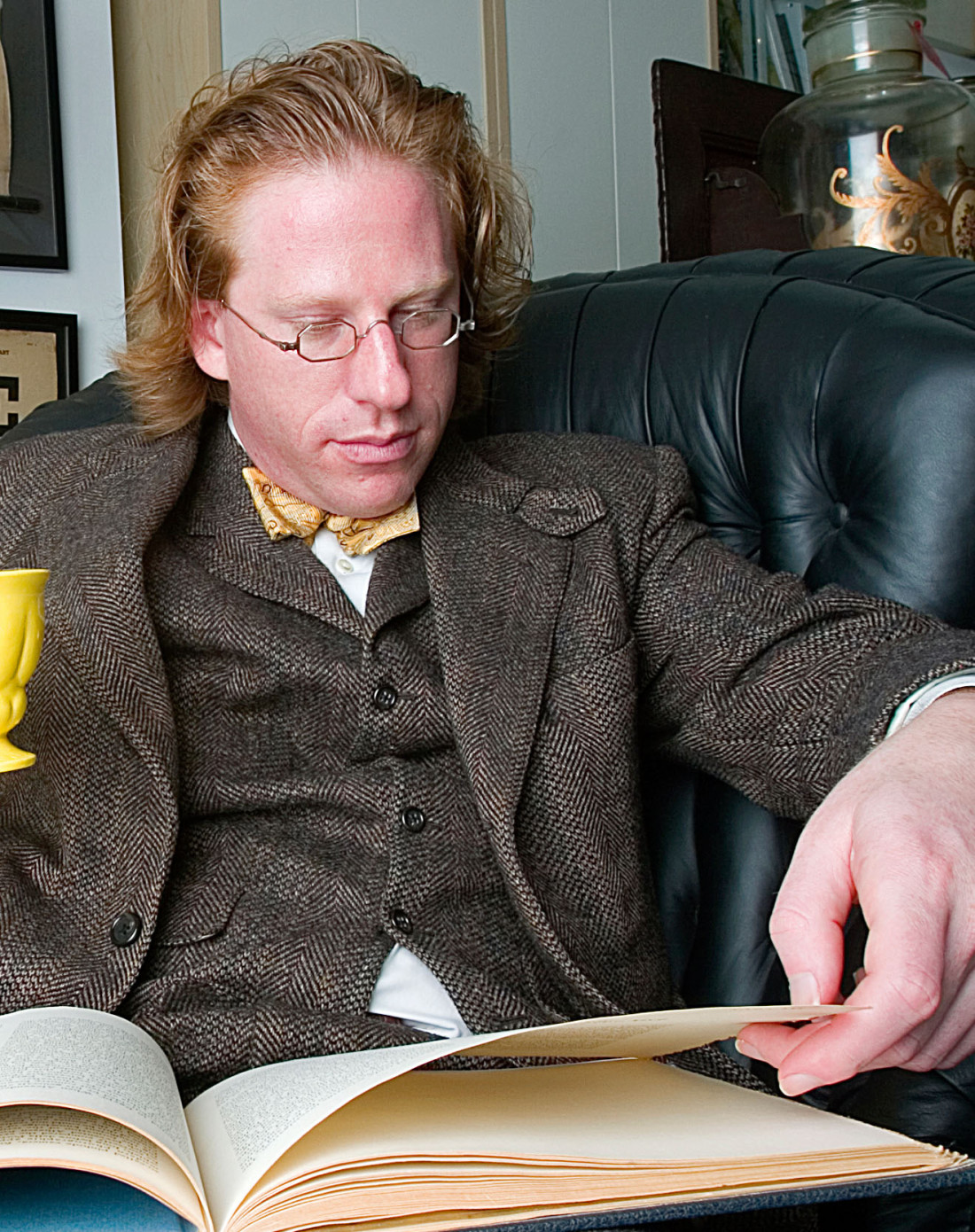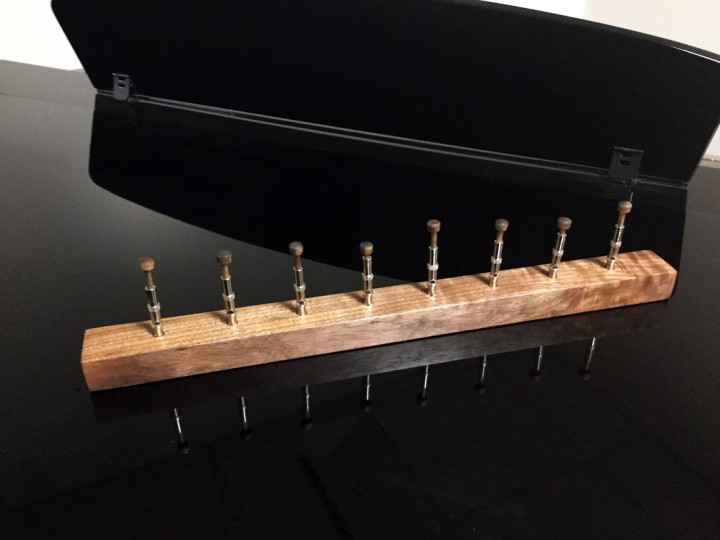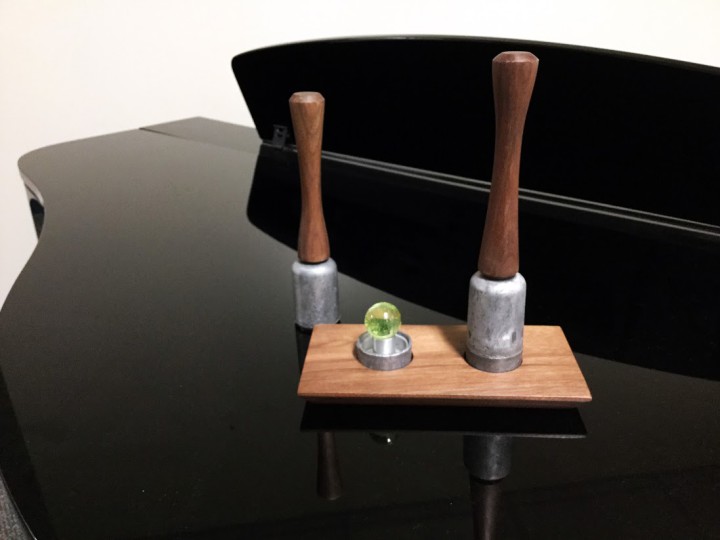Conceptual artist and experimental philosopher Jonathon Keats doesn’t consider himself a musician. “I learned the recorder in fourth grade,” he says. But, a previous investigation into what it would mean for the arts to undergo a Copernican Revolution (in which art, like astronomy, was not centered on Earth and factors known to human artists but expanded its reach to have universal significance) led to the making of what Keats calls the Cosmic Welcome Mat. Keats developed the mats, designed to communicate hospitality to life-forms who may not speak Earth-based languages, with Flinders University space archaeologist Alice Gorman.
“My initial thought is, ‘If I were from Andromeda, would I even feel welcome [on Earth]?’” says Keats. “‘Aliens’ who are just south of the [U.S.] border certainly aren’t. We’re in a world right now that is so tribal, so alienating … it’s a problem.”
Further applying the welcome mat concept, Keats began to think about what it would mean to create art that is truly universal. “Thinking about music as being about orderliness, but the universe going toward a state of greater and greater entropy … I took the entropy quotient for the universe and I applied it to music, to decompose our classical music.” Using Bach’s “Well-Tempered Clavier,” Keats added randomness at the percentage of the entropy of the universe. That piece, among other compositions, will be performed Thursday, April 19, at 9 p.m. at UNC Asheville’s Lipinsky Auditorium.
That free concert, which Keats describes as a festival because of its multiple levels of meaning and far-reaching implications, is part of the philosopher’s residency at UNCA as the university’s Black Mountain College Legacy Fellow for the spring 2018 semester. Compositions are being created as part of a class taught by Bill Bares, associate professor of music at UNCA; the performance — billed as the Universal Orchestra — will include students and faculty.
And, because the Universal Orchestra and its sounds aren’t relegated to those musical instruments deemed pleasing to human ears, Keats and university students have been constructing new instruments that use radio waves, gamma rays and gravitation waves at UNCA’s STEAM Studio.
The gamma ray bells are played by lifting them from their walnut platform. Under one bell is a uranium glass marble purchased on eBay; under another is a radium dial wristwatch, both of which “are emitting gamma rays, not just in one part of the spectrum,” says Keats. “By ringing these bells, by lifting them, you can perform, in a simple way — admittedly I couldn’t get many other radioisotopes legally — for gamma rays.”
There’s an organ made of dog whistles that operates by moving stops. It might be for dogs or for beings we can’t even imagine. A gravitational cello is “I believe the first instrument ever made for gravitational waves,” says Keats. “Acceleration corresponds to frequency … and amplitude maps onto mass.” A string apparatus and interchangeable weights allow the instrument’s player to manipulate gravitational waves.
The concert also includes student creations. One has been field-recording crickets and will be performed onstage with a cricket. “He’ll be playing cricket sounds to the cricket in feedback loops, and it becomes a means by which to bridge a certain sort of species divide and question the nature of authority that manifests from intelligence, that manifests from a sense of superiority and so forth,” Keats explains.
The Universal Orchestra is highly conceptual, Keats admits, and enters into the realm of the absurd. “The moment you start to laugh, you suddenly are not on guard in the way that is typically the case when you’re arguing for something,” he says. “Absurdity and the sort of humor that comes out of absurdity is disorienting in terms of taking away all of your certainties, and disarming in terms of putting animosity in the background.”
That is to say, going back to the point about Central and South American immigrants not feeling welcome, let alone a visitor from Andromeda, there’s still plenty of activist work to be done on the local level. Keats doesn’t deny the importance of such efforts but adds, “We also need other ways of reaching people in terms of how they think, how they might come together. This is potentially a way.”
He continues, “Music is probably the most popular of popular culture, so how can that be used? … I think you can reach a lot of people in a lot of ways. [The Universal Orchestra] is open-ended. I don’t know what it means [but] this is a space for finding commonalities, for discovering forms of relationship.”
Select instruments and compositions from the Universal Orchestra will be on exhibit at UNCA’s Ramsey Library through Friday, April 27. Keats will also appear with Bares and UNCA Paddison Distinguished Professor Wayne Kirby as part of Black Mountain College Museum + Arts Center’s Listening Session series. The event takes place on Friday, April 20, at 7 p.m. at 56 Broadway. Admission is $5; free for students.






Before you comment
The comments section is here to provide a platform for civil dialogue on the issues we face together as a local community. Xpress is committed to offering this platform for all voices, but when the tone of the discussion gets nasty or strays off topic, we believe many people choose not to participate. Xpress editors are determined to moderate comments to ensure a constructive interchange is maintained. All comments judged not to be in keeping with the spirit of civil discourse will be removed and repeat violators will be banned. See here for our terms of service. Thank you for being part of this effort to promote respectful discussion.